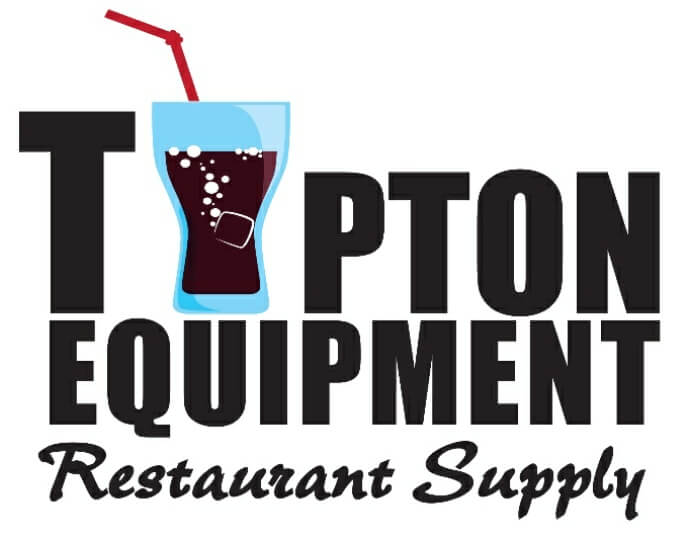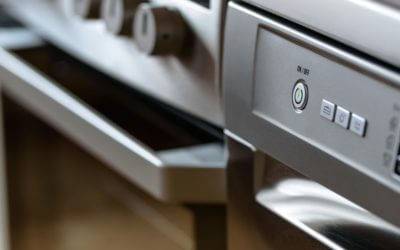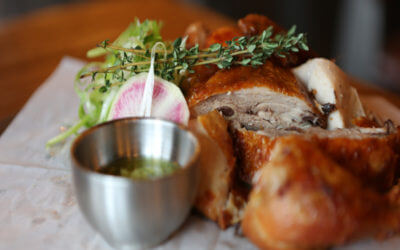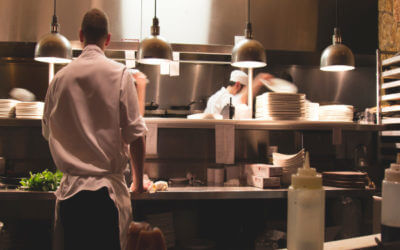Restaurant Equipment Spotlight: Gas vs. Electric
April 12, 2019Does your Little Rock restaurant use gas or electric restaurant equipment?
In all likelihood you made this decision a long time ago, but it’s one that can always be reconsidered.
There are benefits to both. If you’re opening a new restaurant location, it’s vital to carefully consider your options. However, even if you’ve been operating for quite some time, you can decide to switch.
Here’s what you need to know!
Why Energy Matters
If your stoves and ovens work, why does it matter whether you use electric or gas restaurant equipment? The biggest reason has to do with energy costs. You can purchase Energy Star appliances of both types, but one utility may be more expensive than the other in your area.
Your chefs may also have a preference – and if you’re a higher-end restaurant, that makes a big difference. Many chefs learned how to cook on gas appliances – especially ranges – and definitely want to continue doing so. Of course, that doesn’t mean you can convert other appliances to electric if it makes sense.
Gas Restaurant Equipment: Pros and Cons
The primary benefit of gas restaurant equipment is that it can cost less to operate. Gas creates more heat per unit than electricity does, and thus you might expect to pay less for gas than electric.
With a gas range, the knob controls the intensity of the flame and heat directly, with no warm-up time needed. Your chefs may enjoy having access to the flame for specific cooking techniques as well. You’ll also have access to your cooking equipment during a power outage.
However, gas equipment can cost more up front. It’s also less efficient, since much of the heat escapes through a vent or into the air. This means your kitchen is hotter, and you pay more for cooling. Gas appliances can also be more dangerous, since a gas leak can lead to illness, explosions, and even death.
Electric Equipment: Pros and Cons
Are there any reasons to prefer electric restaurant equipment to gas options? Yes, there are!
First, electric appliances are less expensive up front. Not only are they cheaper, but they’re easier to install as well, which can save you money on setup fees. Many times you simply need to position the unit and plug it in.
While gas ranges are preferred by many chefs, the truth is that when it comes to ovens, electric reigns supreme. They heat more evenly and cook more efficiently.
However, electric equipment can be affected by power outages, and if electricity is expensive in your area, you can see a big difference in operating costs.
Choose the Right Equipment For Your Kitchen
Many Little Rock restaurant owners think that they have to choose either all electric or all gas appliances. This isn’t true at all. You can take advantage of the benefits on both sides by choosing your appliances individually
For instance, you might choose a gas range but an electric oven. This gives your chef stove-top control while giving you the lower cost and even heating of electric in your ovens.
If you’re looking for the right restaurant equipment for your kitchen, let us help. We’ve been serving Little Rock restaurants for many years, and we’d love to assist you as well. Contact us for a quote today!
5 Things Every Restaurant Owner Should Do Before Buying Used Kitchen Equipment
Equipping your restaurant properly can cost a lot of money, so buying used kitchen equipment is the go-to choice for many restaurateurs. Buying used kitchen equipment for a restaurant is a bit different than buying used equipment for your home, however. You will...
Top Restaurant Technology Trends in 2018
When looking to buy restaurant supplies, you want to be on the leading edge of technology trends. This will keep your kitchen running smoothly. Let’s take a look at some of the most recent trends in restaurant supplies technology. 1. New Payment Options Who would...
5 Different Ice Shapes and Why You Should Care About Them
Ice makers are very popular in the restaurant and foodservice community because they eliminate the need to buy ice every day. And of course, adding an ice maker to your collection of foodservice equipment means you will always have ice on hand when you need it. An...
Pulping and Grinding: A Starter’s Guide to Reducing Commercial Food Waste Costs
For most restaurant owners and managers, the expenses involved in making meals are always under careful consideration. Water is needed to prepare, cook and wash food; power is necessary for food prep, cooking and cooling, and so on. However, how many of us consider...
Choosing the Right Milk Cooler: Cold Wall or Forced Air?
In a restaurant, milk is an essential to have on hand for coffee and other café-style beverages, for serving with kids’ meals, and as a key ingredient in many recipes. Keeping your milk properly chilled can be difficult without the proper restaurant equipment....
How to Choose Your Next Commercial Meat Smoker
The movies that connect with us on a personal level are the ones that linger in our memories forever. Anyone who has used a commercial meat smoker knows that they have a huge influence on the taste of a meal. You need to have just the right kitchen equipment to get a...
Are High Speed Ovens Too Good to be True?
You might have heard a few of the bold claims that foodservice equipment manufacturers have been making about high speed ovens, but they can’t be possible, right? Cooking three times as faster as regular ovens? Five times as fast? Fifteen times as fast? It may seem...
Choosing the Right Food Storage Containers for Your Restaurant
Choosing the right kitchen supplies will make a difference in your restaurant. Whether it is heavy duty kitchen equipment or food storage containers, each piece of equipment plays its own important role. Today, we are going to talk about how to choose the right food...
Tipton’s Guide to Perfect Poultry Trussing
Do you ever truss birds in your commercial kitchen? Trussing is a fantastic cooking technique because it makes poultry cook faster, look more attractive and taste better. If your commercial kitchen prepares poultry, you don’t want to miss these trussing tips. Trussing...
How to Eliminate Excess Condensation in Your Kitchen
Is your commercial kitchen getting steamy? If so, you could have more than just an uncomfortable working environment on your hands. Excess moisture in your commercial kitchen can result in the corrosion of equipment, the development of mold, and even damage to your...
The DIY Guide to Your Restaurant’s Own Garden
Stocking your restaurant supply with your own home-grown herbs and produce can truly bring your dishes to life. When it comes to food, everyone knows there’s nothing like homemade and home-grown. Having your own culinary garden, however large or small, can help you...
5 Reasons a Meat Grinder Will Set Your Burgers Apart
The more you do to prepare your foods in-house with the right kitchen equipment, the fresher and more flavorful your dishes become. There are all sorts of restaurants offering fast-food style burgers, but some diners are looking for the real deal. A fresh, juicy...
Pest Preventions to Implement in Your Commercial Kitchen
Restaurant pests: it’s something that few people want to think about. Like it or not, pest management is an essential consideration for every commercial kitchen. Offering food, shelter and water, the unprepared commercial kitchen naturally provides everything pests...
Choosing the Right Material for Your Cooking Equipment
Kitchens are very unique to their chef. Just like a car mechanic has a toolbox unique to them, so is the cooking equipment in a kitchen. And over time, the same cooking equipment become a natural extension of the chef. What tools are you using in your kitchen? It...
Kitchen Hacks for Your Home
Some people are naturally good at certain skills. We all know someone who is naturally book smart, athletic, or musically inclined. What makes you jealous of them is how easy they make tasks seem compared to you. One skill might be cooking. Your dream may not be...















